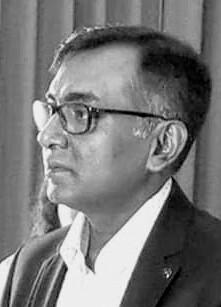Time management is very much important in IIT JAM. The eduncle test series for IIT JAM Mathematical Statistics helped me a lot in this portion. I am very thankful to the test series I bought from eduncle.
Nilanjan Bhowmick AIR 3, CSIR NET (Earth Science)- UGC NET
- English
Do tell about the imp quotes or phrases of location of culture by homi bhabha
do tell about the imp quotes or phrases of location of culture by Homi Bhabha
- 0 Likes
- 4 Comments
- 0 Shares
-
![comment-profile-img]() >
>
-
![comment-profile-img]() >
>
Deb dulal halder Halder
The Location of Culture ( London & NY: Routledge 1994) [The] representation of difference must not be hastily read as the reflection of pre-given ethnic or cultural traits set in the fixed tablet of tradition. The social articulation of difference, from the minority perspective, is a complex, ongoing negotiation that seeks to authorize cultural hybridities that emerge in moments of historical transformation. The ‘right’ to signify from the periphery of authorized power and privilege does not depend on the persistence of tradition; it is resourced by the power of tradition to be reinscribed through the conditions and contradictoriness that attend upon the lives of those who are ‘in the minority.’ The recognition that tradition bestows is a partial form of identification. In restaging the past it introduces other, incommensurable cultural temporalities into the invention of tradition. (p.2; quoted by Bernard McKenna in PGLIB Conference Transactions, 1998.) ‘[T]he interstitial passage [liminality] between fixed identifications opens up the possibility of a cultural hybridity that entertains difference without an assumed or imposed hierarchy.’ (p.4.) ‘The enunciation of cultural difference problematizes the binary division of past and present, tradition and modernity, at the level of cultural representation and its authoritative address. It is the problem of how, in signifying the present, something comes to be repeated, relocated and translated in the name of tradition, in the guise of a pastness that is not necessarily a faithful sign of historical memory but a strategy of representing authority in terms of the artifice of the archaic.’ (The Locations of Culture, 1994), pp. 34-35; quoted in Alex Davis, ‘Irish Poetic Modernisms: A Reappraisal’, in Critical Survey 8, 2, 1996, pp.186-97.) ‘The problem is not simply the “selfhood” of the nation as opposed to the “otherness” of other nations. We are confronted with the nation split within itself, articulating the heterogeneity of its population.’ (p.98.) ‘The recesses of the domestic space become sites for history’s most intricate invasions. In that displacement, the borders between home and world become confused; and, uncannily, the private and public become part of each other, forcing upon us a vision that is as divided as it is disorienting.’ (Quoted as epigraph to Richard Pine, The Diviner: The Art of Brian Friel, Dublin: UCD Press 2000, [p.161].) Bhabha argues that the experience of colonialism created a textuality which ‘anticipated, avant la lettre, many of the problematics of signification and judgement that have become current in contemporary theory.’ (‘The Postcolonial and the Postmodern’, in The Location of Culture, 1994, p.173; quoted in Shaun Richards, ‘Placed Identities for Placeless Times: Brian Friel and Post-Colonial Criticism’, Irish University Review, Spring-Summer, 1997, p.55.) Note that Richards further quotes: the ‘seemingly unnegotiable poco-pomo fusion’ predicated on ‘the impossibility of claiming an origin of the Self (or Other) within a tradition of representation that conceived of identity as the satisfaction of a totalising, plenitudinous object of vision.’ (Bhabha, op. cit., p.46; Richards, idem. [p.55]. 'Universalism does not merely end with a view of immanent “spiritual” meaning produced in the text. It also interpellates, for its reading, a subject positioned at the point where conflict and difference resolves and all ideology ends. It is not that the Transcendental subject cannot see historical conflict or colonial difference as mimetic structures or themes in the text. What it cannot conceive, is how it is itself structured ideologically and discursively in relation to those processes of signification which do not then allow for the possibility of whole or universal meanings.’ ('[Of mimicry and man: the ambivalence of colonial discourse’, in October 28, Spring, 1984; rep. as The Location of Culture, Chap. 4.) [Bhabha posits a “third Space” between the stereotypical differences of colonial discourse:] ‘It is significant that the productive capacities of this Third Space have a colonial or postcolonial provenance. For a willingness to descend into that alien territory . may open the way to conceptualising an international culture, based not on the exoticism of multiculturalism or the diversity of cultures, but on the inscription and articulation of culture’s hybridity.’ (The Location of Culture, 1994; q.p.).
-
![comment-profile-img]() >
>
Deb dulal halder Halder Best Answer
The Location of Culture ( London & NY: Routledge 1994) [The] representation of difference must not be hastily read as the reflection of pre-given ethnic or cultural traits set in the fixed tablet of tradition. The social articulation of difference, from the minority perspective, is a complex, ongoing negotiation that seeks to authorize cultural hybridities that emerge in moments of historical transformation. The ‘right’ to signify from the periphery of authorized power and privilege does not depend on the persistence of tradition; it is resourced by the power of tradition to be reinscribed through the conditions and contradictoriness that attend upon the lives of those who are ‘in the minority.’ The recognition that tradition bestows is a partial form of identification. In restaging the past it introduces other, incommensurable cultural temporalities into the invention of tradition. (p.2; quoted by Bernard McKenna in PGLIB Conference Transactions, 1998.) ‘[T]he interstitial passage [liminality] between fixed identifications opens up the possibility of a cultural hybridity that entertains difference without an assumed or imposed hierarchy.’ (p.4.) ‘The enunciation of cultural difference problematizes the binary division of past and present, tradition and modernity, at the level of cultural representation and its authoritative address. It is the problem of how, in signifying the present, something comes to be repeated, relocated and translated in the name of tradition, in the guise of a pastness that is not necessarily a faithful sign of historical memory but a strategy of representing authority in terms of the artifice of the archaic.’ (The Locations of Culture, 1994), pp. 34-35; quoted in Alex Davis, ‘Irish Poetic Modernisms: A Reappraisal’, in Critical Survey 8, 2, 1996, pp.186-97.) ‘The problem is not simply the “selfhood” of the nation as opposed to the “otherness” of other nations. We are confronted with the nation split within itself, articulating the heterogeneity of its population.’ (p.98.) ‘The recesses of the domestic space become sites for history’s most intricate invasions. In that displacement, the borders between home and world become confused; and, uncannily, the private and public become part of each other, forcing upon us a vision that is as divided as it is disorienting.’ (Quoted as epigraph to Richard Pine, The Diviner: The Art of Brian Friel, Dublin: UCD Press 2000, [p.161].) Bhabha argues that the experience of colonialism created a textuality which ‘anticipated, avant la lettre, many of the problematics of signification and judgement that have become current in contemporary theory.’ (‘The Postcolonial and the Postmodern’, in The Location of Culture, 1994, p.173; quoted in Shaun Richards, ‘Placed Identities for Placeless Times: Brian Friel and Post-Colonial Criticism’, Irish University Review, Spring-Summer, 1997, p.55.) Note that Richards further quotes: the ‘seemingly unnegotiable poco-pomo fusion’ predicated on ‘the impossibility of claiming an origin of the Self (or Other) within a tradition of representation that conceived of identity as the satisfaction of a totalising, plenitudinous object of vision.’ (Bhabha, op. cit., p.46; Richards, idem. [p.55]. 'Universalism does not merely end with a view of immanent “spiritual” meaning produced in the text. It also interpellates, for its reading, a subject positioned at the point where conflict and difference resolves and all ideology ends. It is not that the Transcendental subject cannot see historical conflict or colonial difference as mimetic structures or themes in the text. What it cannot conceive, is how it is itself structured ideologically and discursively in relation to those processes of signification which do not then allow for the possibility of whole or universal meanings.’ ('[Of mimicry and man: the ambivalence of colonial discourse’, in October 28, Spring, 1984; rep. as The Location of Culture, Chap. 4.) [Bhabha posits a “third Space” between the stereotypical differences of colonial discourse:] ‘It is significant that the productive capacities of this Third Space have a colonial or postcolonial provenance. For a willingness to descend into that alien territory . may open the way to conceptualising an international culture, based not on the exoticism of multiculturalism or the diversity of cultures, but on the inscription and articulation of culture’s hybridity.’ (The Location of Culture, 1994; q.p.).
-
![comment-profile-img]() >
>
Deb dulal halder Halder
![best-answer]()
ambivalence, hybridity, colonial resistance, double but not yet one,
Do You Want Better RANK in Your Exam?
Start Your Preparations with Eduncle’s FREE Study Material
- Updated Syllabus, Paper Pattern & Full Exam Details
- Sample Theory of Most Important Topic
- Model Test Paper with Detailed Solutions
- Last 5 Years Question Papers & Answers
Sign Up to Download FREE Study Material Worth Rs. 500/-










 >
>








Deb dulal halder Halder
[ top ] 'Signs Taken for Wonders: Questions of Ambivalence and Authority under a Tree Outside Delhi, May 1817', in Race, Writing and Difference, ed. Henry Louis Gates, Jr., Chicago UP 1985. Speaks of the power of hybridity that enables the colonized the appropriate the language, the texts, the knowledge of the colonizer in such a way as to ‘'estrange the basis of its authority - its rules of recognition.’ Further, it is the power of hybridity that enables the colonized to challenge ‘the boundaries of discourse’, and which ‘breaks down the symmetry and duality of the self/Other, inside/outside’ and establishes another space of power/knowledge. (pp.175, 177; summarised in Susan Bazargan, op. cit. 1994, p.125.)